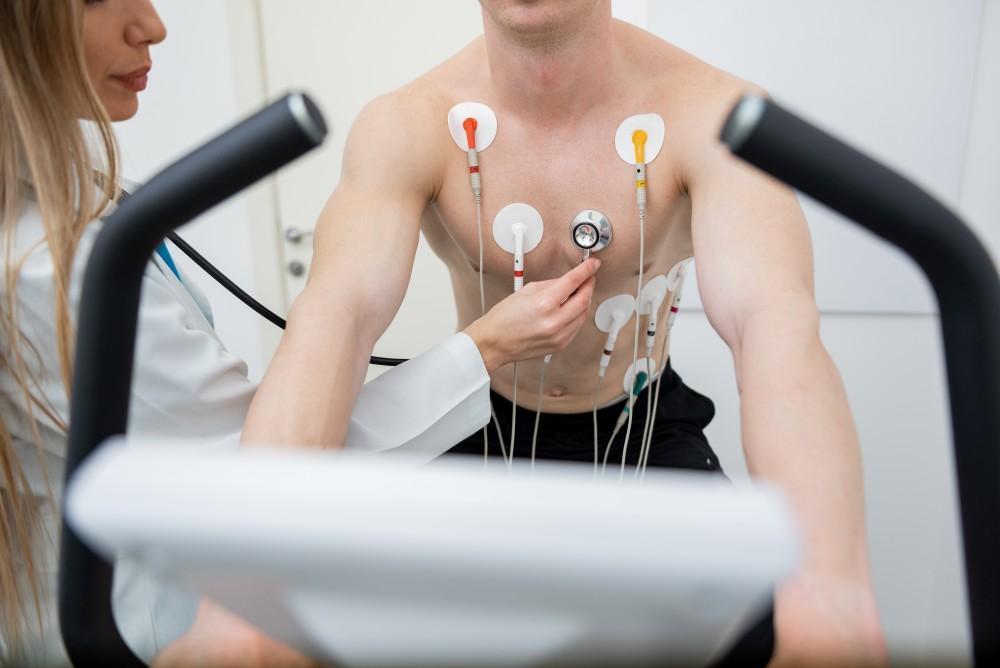
Are Heart Palpitations Dangerous?

Feeling your heart skip can make you think something is wrong with your heart, and that’s a worrying feeling. Heart palpitations are very common, and, usually, they are nothing to worry about.
However, heart palpitations can be a sign of a more serious condition, so it’s always a good idea to have your symptoms reviewed by Dr. Henock Saint-Jacques of Harlem Cardiology. As a Fellow of the American College of Cardiology and an experienced heart specialist, Dr. Saint-Jacques is experienced at diagnosing and treating heart palpitations.
If you experience heart palpitations, you might wonder what effect they have on your health. Keep reading to learn more about the potential dangers of heart palpitations.
Have you experienced a heart palpitation?
If you’ve ever felt your heart start pounding suddenly, flutter, or even skip a beat, then you’ve likely experienced a heart palpitation. According to the experts at Mayo Clinic, heart palpitations may feel like your heart:
- Skipped a beat
- Is pounding
- Is beating too fast
- Is flip-flopping
Note: these symptoms can appear while you're resting as well as while you’re active.
Is a heart palpitation dangerous?
A rapidly beating heart sounds dangerous, but is it? The answer depends on what’s causing heart palpitations.
Heart palpitations may be an occasional issue caused by:
- A strong emotional response to an event or situation (stressful moment, etc.)
- Strenuous exercise
- Hormonal shifts (e.g., pregnancy or menopause)
- Having too much thyroid hormone
- Having too little thyroid hormone
Palpitations are also caused by stimulants such as caffeine, nicotine, and common cold or cough medications. In these cases, you might see that your heart palpitations cease without these triggers. For example, if you cut back from three cups of coffee to one cup, you might see the palpitations cease.
When to worry about palpitations
Sometimes, though, heart palpitations can be symptoms of a more serious heart condition. If your heart palpitations occur frequently and/or last for more than a few seconds, it’s time to find out what’s causing your symptoms. Heart palpitations can be a sign of the following heart conditions:
- Arrhythmia
- Tachycardia
- Bradycardia
- Irregular rhythm of your heartbeat
The American Heart Association also warns that heart palpitations can be a sign of heart failure. Because the heart has to work harder and make up for the loss of pumping capacity, you might notice your heart is racing.
If your heart palpitation is accompanied by chest pain, dizziness, nausea, upper body pain, and/or shortness of breath, seek emergency medical attention.
Treating heart palpitations
Because heart palpitations can be caused by so many different things, the first step is to determine what’s causing the skipped beats or fluttering heart. You might need to reduce your stimulant (e.g., caffeine) intake or have your thyroid evaluated.
For heart palpitations caused by a heart problem, we can help you get the cardiac care you need. For example, an electrocardiogram (EKG or ECG) may be used to evaluate your heart. Whether you need a pacemaker to treat arrhythmia or another treatment, rest assured that your heart is our number one priority.
Don’t brush off the signs of heart palpitations. Call our East Harlem, New York, practice at 646-381-2181. You may also request an appointment via our website today.
You Might Also Enjoy...


Is It Possible to Lower My Blood Pressure Naturally or Do I Need Medicine?

What You Can Do Now to Prevent a Stroke Later in Life

3 Noninvasive Tests That Measure the Health of Your Heart

What Can I Do About My Varicose Veins?


